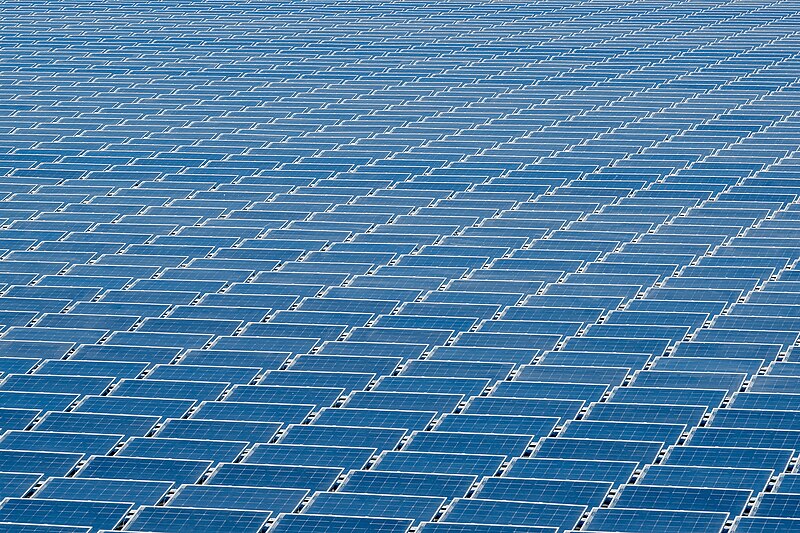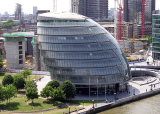
The UK faces the possibility of becoming a "dumping ground" for Chinese-made solar panels as shipments originally destined for the United States are rerouted due to Donald Trump’s tariffs on
Beijing, experts have warned.
Currently, most solar panels in the UK are manufactured in China. However, the imposition of US tariffs, alongside the European Union’s renewed efforts to support its domestic solar manufacturing industry, could result in an increased influx of Chinese panels into the British market.
According to HM Revenue & Customs (HMRC), around 45% of solar panels imported into the UK originate from China. Beijing dominates 80% of the global supply, with an additional 17% coming from countries like Malaysia, Vietnam, and Thailand, where Chinese firms have established production hubs.
Security and supply chain concerns
The issue comes amid a wider debate over China's influence in the UK, including the controversial proposal for a large new Chinese embassy in London. Critics worry about the potential risks associated with the UK’s reliance on Chinese-made energy infrastructure, particularly concerning national security.
Alicia Kearns MP, former chair of the Foreign Affairs Select Committee, expressed concern over the UK’s dependence on solar panels produced under the control of the Chinese Communist Party. She emphasized that Beijing has secured dominance over the processing of critical minerals required for solar panel production, warning that overreliance on Chinese technology poses a national security risk.
Evan Fowler, a representative from the Inter-Parliamentary Alliance on China, highlighted how China has heavily invested in green technologies, including solar panels and electric vehicles. With US tariffs limiting their exports, China may now look to the UK as a prime destination for surplus products.
“The UK seems to be an ideal place for China to offload its excess supply,” Fowler said.
Forced Labour allegations in the supply chain
Concerns have also been raised over allegations of forced labor in China’s solar panel supply chain, particularly in the production of polysilicon—a key component in solar photovoltaic (PV) panels. Xinjiang, a region linked to allegations of human rights abuses against Uyghur Muslims, supplies 45% of the world’s polysilicon.
A 2021 study from Sheffield Hallam University found that polysilicon production in Xinjiang operates under a system of coercion, a claim that Beijing has consistently denied. The United Nations, along with Western nations including the UK and the US, has accused the Chinese government of crimes against humanity in its treatment of the Uyghur population.
Despite the UK’s Modern Slavery Act of 2015, which criminalizes forced labor in supply chains, critics argue that current regulations are inadequate. Fowler pointed out that the UK lags behind other nations, particularly the European Union, which has implemented stricter corporate accountability measures to prevent forced labor in supply chains.
“In Xinjiang, we are dealing with a state-run forced labor system on a scale that’s not seen elsewhere,” Fowler explained. “It’s difficult to demand transparency from a government that refuses to acknowledge the problem.”
Calls for legislative action
Kearns, now serving as the Conservative Party’s Shadow Minister for Home Affairs, criticized the Labour Government for pushing ahead with solar expansion plans without properly addressing the ethical concerns surrounding Chinese-made solar panels.
“The Government seems blindly obsessed with greenlighting solar projects, disregarding concerns over supply chain ethics,” she said. “Unless we take action, the UK risks becoming a dumping ground for solar panels produced with forced labor.”
She called for targeted legislation against companies using polysilicon produced through forced labor, similar to the Uyghur Forced Labor Prevention Act introduced in the US in 2021.
Industry perspective and government response
Chris Hewett, CEO of Solar Energy UK, challenged the idea that Trump’s tariffs would significantly impact the UK solar market. He noted that the US has become increasingly self-reliant on its renewable energy production in recent years.
He emphasized that solar energy reduces reliance on imported fossil fuels from the Middle East and Russia, ultimately strengthening the UK’s energy security. Solar Energy UK, in partnership with Solar Power Europe, has also launched an initiative to ensure supply chain transparency, aiming to eliminate human rights violations in the global solar industry.
“I am increasingly confident that solar panels sold under the Solar Stewardship Initiative in the UK are free from forced labor risks,” Hewett stated.
A Government spokesperson reiterated the UK’s commitment to combating modern slavery, describing it as a “barbaric crime” and confirming that policies are under constant review to improve labor standards within supply chains.
As the UK accelerates its transition to solar power to meet net-zero targets, the debate over ethical sourcing and national security concerns surrounding Chinese-manufactured panels is likely to intensify. Photo by Makoto Lin / Office of the President (中華民國總統府), Wikimedia commons.









































